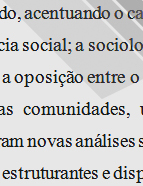

................................
As for F. Adolfo Coelho (1847/1919), it is worth noting the set of three articles he published entitled “Para a História da Instrução Popular” [Towards a History of Popular Education] ( Revista de Educação e Ensino , 1895). He cites bibliographical sources but draws attention to the need to consult archival sources: “Certainly much more would be found with less incomplete research, especially in the examination of archives,” noting that before the 14th century there are practically no documents and only from the 15th century onwards are some found on popular education and considerably more on the UC and convents. The focus of his attention is the Pombaline reform, of which he is a fervent admirer. In his work Alexandre Herculano e o Ensino Público ( Alexandre Herculano and Public Education , 1910), after analysing the sources, he criticises its individualistic liberalism.
On António da Costa (1824/1892), A Instrução Nacional (1870) begins by addressing the need for popular education and its relationship with freedom, relates popular education to administrative decentralisation and ends with the organisation of education and its evolutionary phases, highlighting Setembrismo and Passos Manuel. In História da Instrução Popular em Portugal desde a fundação da monarquia até aos nossos dias (History of Popular Education in Portugal from the Foundation of the Monarchy to the Present Day, 1871), he follows the same guidelines from medieval times.
José Silvestre Ribeiro (1807/1891) is the author of the most comprehensive work on educational and cultural institutions, Historia dos Estabelecimentos Científicos Litterarios e Artísticos de Portugal nos Successivos Reinados da Monarquia (History of Scientific, Literary and Artistic Establishments in Portugal during the Successive Reigns of the Monarchy), 1871. It begins with an introduction on the origins and then describes the institutions by reign, adding the infants D. Luís and D. Maria. With D. Catarina, wife of D. João III, he studies the colleges she founded, the UE and the UC with their colleges. With D. Pedro II, he deals with various academies, as he does with D. João V. With D. José, he addresses the Pombaline reform. He organises his work by indexes and, through references and notes, we can see that he uses bibliographical sources, the Monarquia Lusitana, the Elucidário, various memoirs of the Academy, catalogues and collections of legislation, documents from the University of Coimbra, chronicles and old books.
This work is financed by national funds through FCT - Foundation for Science and Technology, I.P, in the scope of the projects UIDB/04311/2020 and UIDP/04311/2020.
